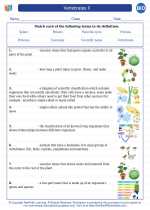Omnivores
Omnivores are animals that have a diet that includes both plant and animal matter. These animals are able to consume and digest a variety of food sources, allowing them to adapt to different environments and food availability. Humans, bears, pigs, and raccoons are examples of omnivores.
Diet
Omnivores have a diverse diet that includes fruits, vegetables, grains, meats, and other animal products. Their ability to consume a wide range of foods allows them to obtain the nutrition they need to survive and thrive.
Digestive System
The digestive systems of omnivores are adapted to process both plant and animal matter. They often have a combination of teeth for grinding plant material and teeth for tearing and chewing meat. Their digestive enzymes are also capable of breaking down a variety of nutrients from different sources.
Adaptations
Omnivores have evolved various adaptations to effectively obtain and process their diverse diet. For example, bears have a strong sense of smell and sharp claws to locate and capture prey, while also being able to forage for plant foods. Humans have developed cooking methods and food preparation techniques to make a wider range of foods digestible and safe to eat.
Ecological Importance
Omnivores play a vital role in ecosystems as they help control populations of both plants and animals. Their ability to consume a variety of foods allows them to adapt to changes in food availability, making them resilient in fluctuating environments.
Study Guide
- Define omnivores and provide examples of omnivorous animals.
- Discuss the importance of a diverse diet for omnivores.
- Explain the adaptations of the digestive system in omnivores.
- Describe the ecological role of omnivores in ecosystems.
- Compare and contrast the diets of omnivores with those of herbivores and carnivores.
Understanding the role and adaptations of omnivores is important in ecology and can provide insights into human dietary patterns and evolutionary history.
.◂Biology Worksheets and Study Guides High School. Vertebrates II
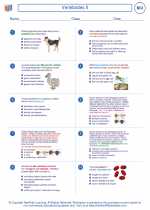
 Worksheet/Answer key
Worksheet/Answer key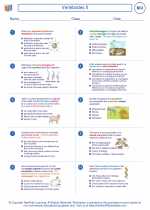
 Worksheet/Answer key
Worksheet/Answer key
 Vocabulary/Answer key
Vocabulary/Answer key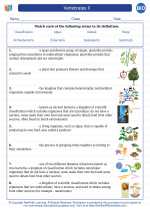
 Vocabulary/Answer key
Vocabulary/Answer key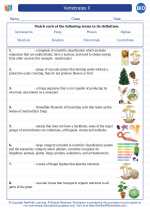
 Vocabulary/Answer key
Vocabulary/Answer key